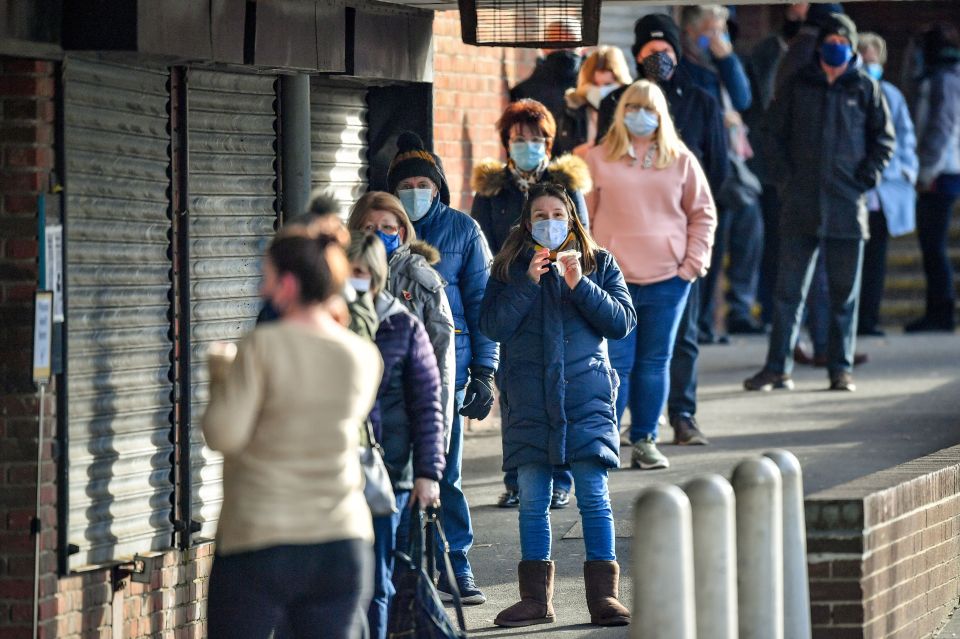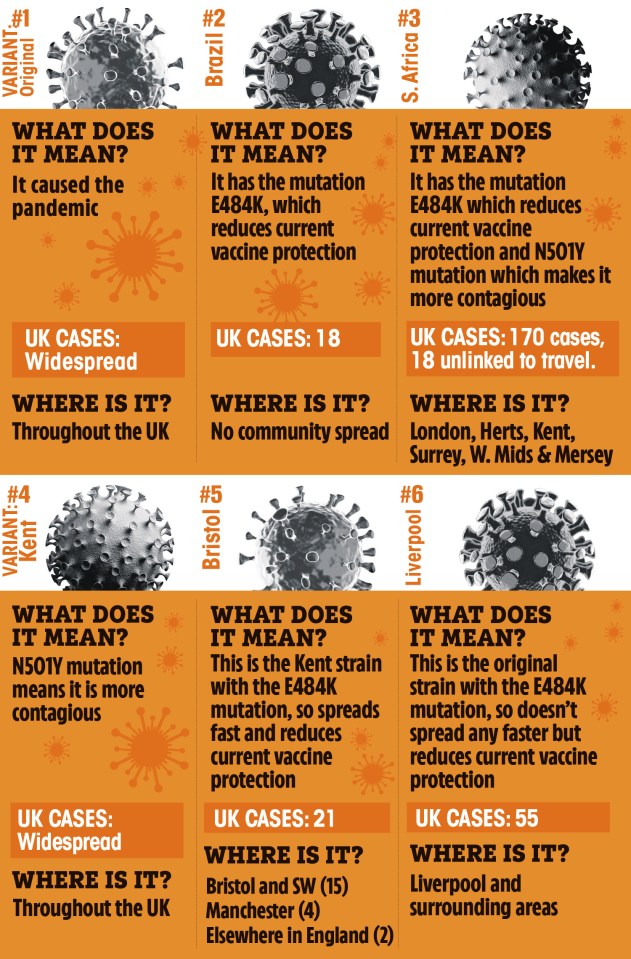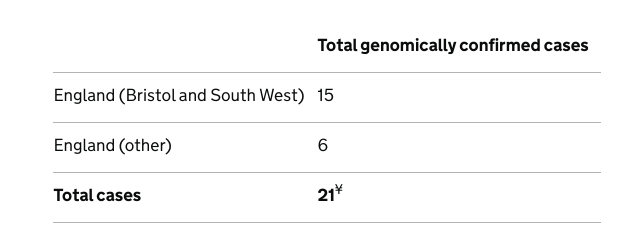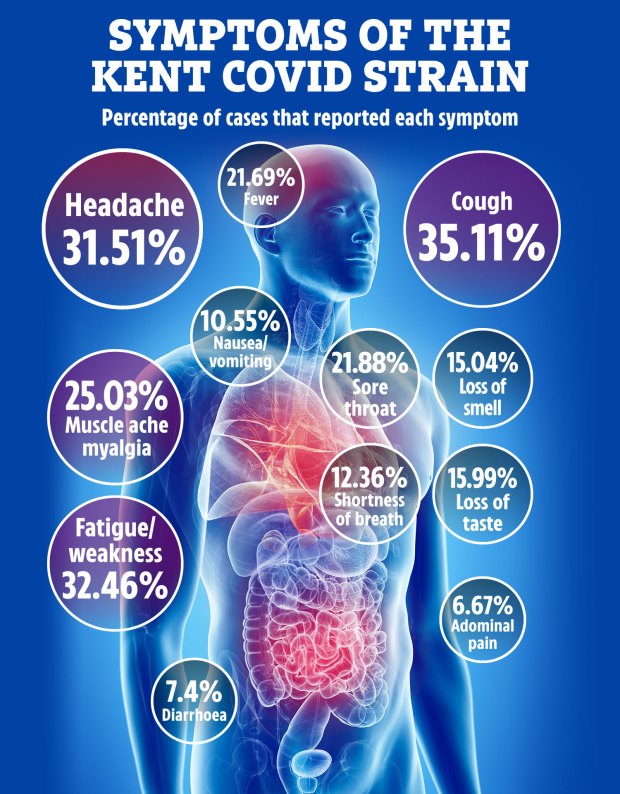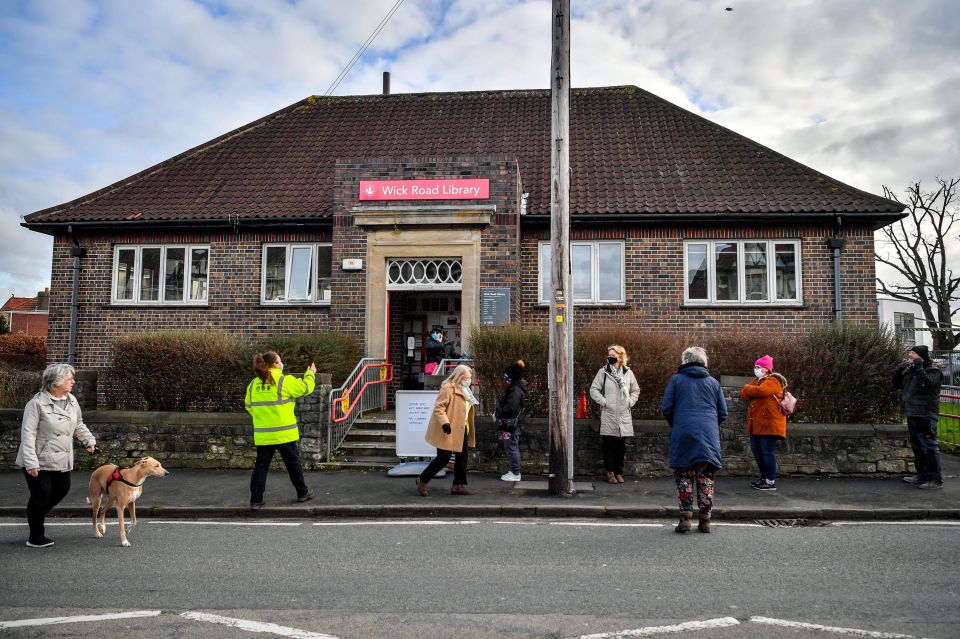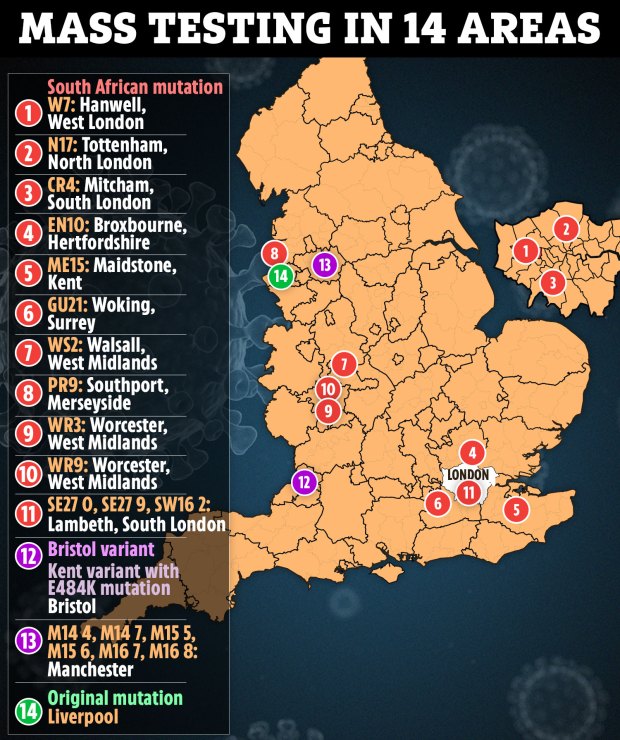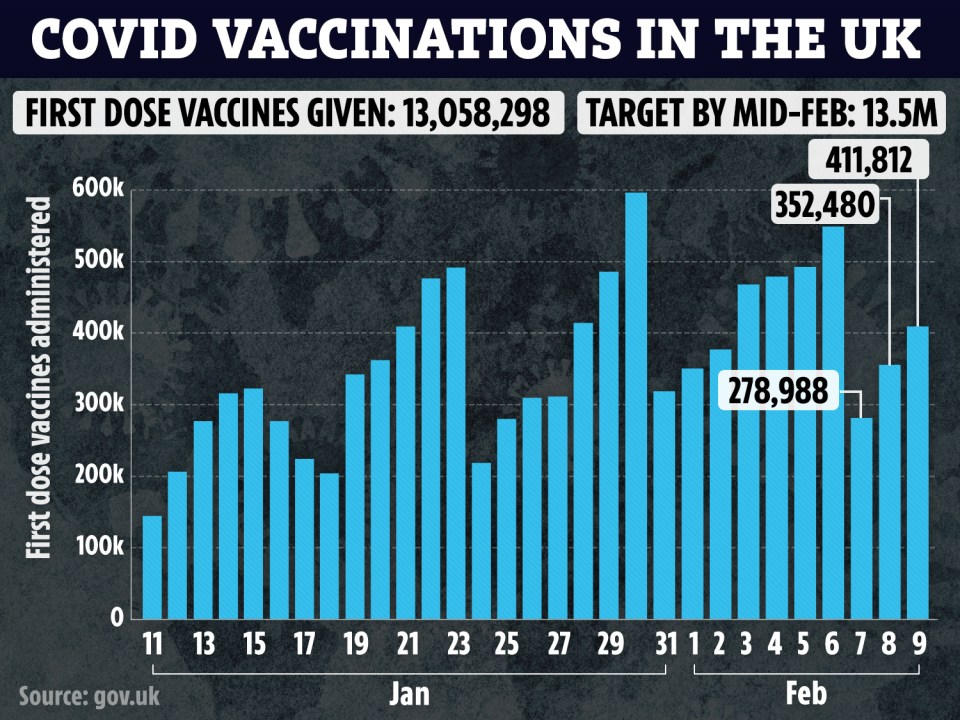What is the Bristol Covid variant?
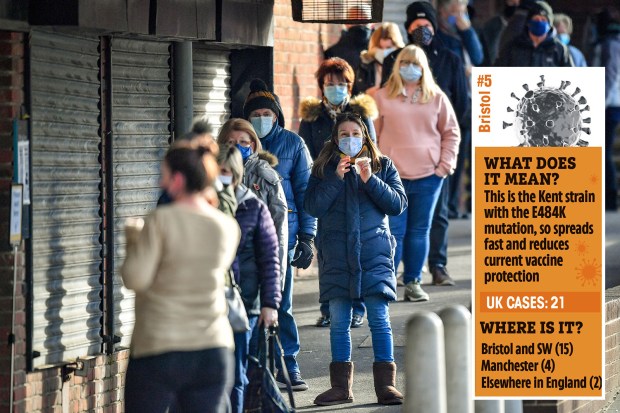
THE Bristol Covid variant has become the centre of conversation after a Sage expert said it could reinfect people who have already had Covid.
It's been detected 21 times in England prompting mass testing to stop further spread.
🦠 Read our coronavirus live blog for the latest news & updates
The makeup of the Bristol variant could give it an advantage over vaccines, in theory.
This is why public health officials are keen to stamp it out as quickly as possible.
Mutations are an inevitable part of the evolution of a virus, and usually, they have no significance.
But a year into the pandemic, some mutations have made significant changes to the biology of the coronavirus.
New variants that hold these mutations are of concern because they have made the virus better able to spread, dodge immunity, and potentially cause death.
The Bristol variant is now one of these variants under the microscope.
What is the Bristol variant?
The Bristol variant was first discovered in the city, South West England.
It is a version of the widespread Kent variant - first identified in the UK in September - with an additional mutation known as the "E484K spike protein".
The Kent variant, thought to be the most dominant coronavirus version in the UK, is already known to be at least 50 per cent more transmissible.
The E484K mutation occurred spontaneously, according to gene sequencing by Public Health England.
Until this point the mutation had only been associated with the South African and Brazil variants.
Lab studies have shown that the E484K mutation means antibodies are less able to bind to a part of the virus known as the spike protein, in order to stop it from unlocking human cells to gain entry.
The Bristol variant is formally called VOC 202102/02.
This is broken down to a"variant of concern" found in February 2021.
It was labelled a variant of concern - the fourth in the UK - on February 9 by the sub-sage group the New and Emerging Respiratory Virus Threats Advisory Group (NERVTAG).
How many cases are there?
Public Health England (PHE) has so far found 21 cases of this variant.
The Government website says there are 15 in "Bristol and the South West" - 14 of which are understood to be in Bristol.
The remaining six are labelled as "England (other)" by PHE - four of which are in Manchester, the council said on February 9.
Professor Sharon Peacock, from the Covid-19 Genomics UK (Cog-UK) Consortium, told the BBC’s Newscast podcast: "I would say that at the moment, it is in very contained areas in very low numbers.
"The point is to swoop down and try and contain that."
Eleven cases of the mutated Kent variant were first found in the Bristol area, hence the name "the Bristol variant", in early February.
Christina Gray, director of public health for Bristol, North Somerset and South Gloucestershire, said cases were first picked up as part of routine sampling.
Are the symptoms the same?
It's unclear whether or not symptoms differ from the three main ones outlined by the NHS.
These are: a new persistent cough, a high temperature and a loss of taste and smell (anosmia).
However, people suffering with the Kent strain are most likely to get a cough, sore throat, tiredness and muscle pain, according to experts.
The Office for National Statistics found people with the Kent variant are much less likely to report high temperatures than those with the original virus that emerged in Wuhan.
And they were less likely to report a loss of smell or taste.
Public Health England said: "There is currently no evidence this mutation alone causes more severe illness or greater transmissibility."
But the Kent strain is more transmissible and potentially more deadly.
What testing is being done?
A two-week testing programme for residents and workers in 24 postcodes was announced by the Bristol and South Gloucestershire councils on February 6.
Anyone over the age of 16 with no coronavirus symptoms in specified postcodes has been urged to take the test.
They can go to three testing sites open seven days a week without booking.
Eight libraries in Bristol and South Gloucestershire are also offering a "collect and drop" service for people that would prefer to do a home test.
If a person living or working in those postcodes and has symptoms, they should get a Covid test through the usual NHS booking service.
Bristol City Council said the listing of an area does not mean the variant is necessarily present in that postcode, and that it would not give details about where the mutated Kent strain has specifically been found.
When the mutated Kent strain was found in Manchester, a testing blitz of another 10,000 Brits was triggered.
Extra testing sites will be set up to enable anyone aged over 16 who lives, works or studies in the affected areas - which includes postcodes in Hulme, Moss Side, Whalley Range and Fallowfield.
Over the next few days, volunteers will be knocking on people's doors to offer tests for anyone who cannot get to a site.
Surge testing is also happening in other parts of England in response to cases of the South African variant, and a Liverpool variant.
Where is testing for the Bristol variant?
In Bristol:
You can get tested if you live in one of these postcode areas:
BS1 3
BS2 0
BS2 8
BS2 9
BS3 5
BS4 4
BS5 0
BS5 6
BS5 7
BS6 5
BS6 6
BS8 2
BS8 3 (only within the Bristol City Council boundary, check your postcode on GOV.UK)
BS9 4
BS14 0 (only within the Bristol City Council boundary, check your postcode on GOV.UK)
BS14 9
BS16 1
BS16 2
BS16 3
BS16 5
BS16 6
BS16 7
BS16 9
BS37 8
.
In Manchester:
From February 9, Manchester council will be inviting all over-16s living, working or studying within these areas to get Covid tests. The postcodes are:
M14 4
M14 7
M15 5
M15 6
M16 7
M16 8
Will vaccines work against it?
An update from PHE said that the E484K mutation "is reported to result in weaker neutralisation by antibodies in laboratory experiments".
A spokesperson: "This could have some impact on the efficacy of a vaccine and we’re studying this closely."
Professor John Edmunds, a member of Sage, said the Bristol strain could also reinfect those who have caught the bug before.
He told ITV's Robert Peston: “Where it has an advantage, potentially at least, is that it may be able to reinfect people who have been previously infected or have been previously vaccinated - that’s the real worry with that particular virus.”
Paul Hunter, a professor of medicine at the University of East Anglia said “the Bristol variant is effectively the same two key mutations that the South African variant has, so will probably have exactly the same implications as the South African variant".
Studies have shown that the vaccines being rolled out do work against the South African strain, but are weaker due to the E484K mutation.
There has generally been reassurance that the vaccines should still be effective against any variant currently in circulation.
The PHE spokesperson said: "Both the Pfizer and Oxford vaccines are highly likely to give strong protection against severe disease and death, regardless of the variant. These are the outcomes that matter most and are what will prevent people from ending up in hospital."
NERVTAG believes vaccinated people should still be protected against severe illness caused by the variants.
The Department of Health and Social Care also says they have “a high degree of confidence that the vaccines will work against variants”.
The Government’s chief scientific adviser Sir Patrick Vallance said new variants are "slightly more likely to look different to the immune system so we need to watch out for it".
Speaking of the Bristol variant, he told the No10 briefing on February 10: "We need to keep on top and need to keep testing the vaccine effects in this situation.”
How are the Bristol and Liverpool variants different?
Another separate mutation of the original Covid variant appears to have emerged in the North East of England which may be confused with the Bristol variant.
While the Bristol variant is the Kent strain with the E484K mutation, the Liverpool variant is the original coronavirus - from Wuhan - with the E484K mutation.
A cluster of 55 cases in Liverpool have been detected with the E484K mutation.
Most read in Health News
Regional PHE officials said the mutation detected in Liverpool was part of cases among staff at Liverpool Women's Hospital last month.
A cluster of an initial five cases was detected on January 10 among some staff who had attended an event outside the hospital, believed to be a funeral.
Read More on The Sun
Extra surging testing will be carried out in the area to stop it spreading, officials said.
Nervtag last night also branded it a "variant under investigation".


